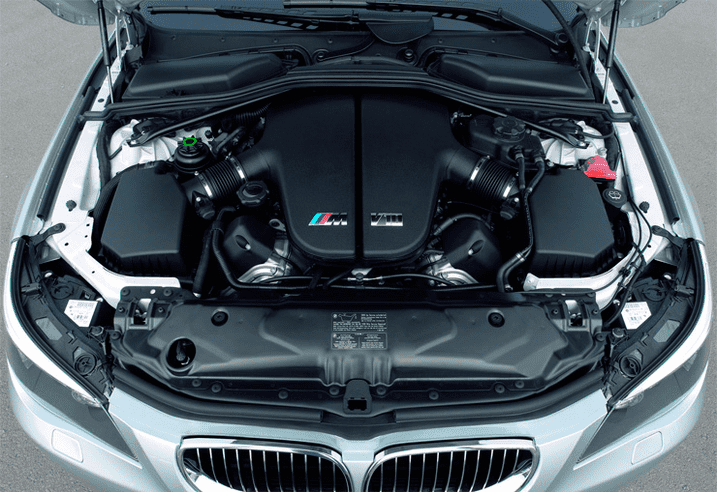When you think of luxury cars, BMW often tops the list. With a reputation for engineering excellence and high-performance engines, this German automaker has been winning hearts (and races) for decades. Whether it’s the purr of an inline-six or the roar of a V8, BMW engines are designed to deliver a blend of performance and precision that’s hard to match. But here’s the million-dollar question: How long can a BMW engine really last with the right care?
In this blog, we’re unpacking everything you need to know about the BMW engine lifespan. We’ll explore the factors that influence how long these powerhouses keep running, the average mileage you can expect, and the maintenance tips that can push your engine past the 200,000-mile mark. Whether you’re cruising in a pre-owned BMW X3 or dreaming of a Certified Pre-Owned 328i, stick around—this one’s for you!
Factors Influencing the Lifespan of a BMW Engine
The BMW engine lifespan isn’t set in stone—it’s a dance between how you treat it and the world it lives in. From regular maintenance to the way you drive, here are the key players that decide whether your engine hits the 150-200,000-mile mark or calls it quits early.
Maintenance: The Heartbeat of Longevity
Let’s start with the golden rule: proper maintenance is everything. BMW engines are like finely tuned athletes—they need routine care to stay at peak performance.
- Oil Changes and Filters: Ever wondered why your mechanic nags about oil changes? Fresh oil keeps your engine’s insides happy, cutting down friction and preventing nasty sludge buildup. Pair that with timely oil filter housing gasket swaps and clean air filters, and you’re dodging major repairs. Skip these, and you’re looking at expensive repairs down the road.
- BMW’s Maintenance Schedule: Stick to the regular maintenance schedule in your owner’s manual—think spark plugs, power steering fluid, and drive belt checks. It’s not just busywork; it’s the difference between a reliable engine and one plagued by common issues.
- Critical Components: Timing belts, water pumps, and belt idler pulleys don’t last forever. Replacing them on time can save you from a breakdown—or worse, a totaled engine. For example, the N55 engine loves a good timely replacement of its coolant hose to avoid overheating.
A 2022 Consumer Reports study found that cars with consistent routine maintenance last up to 35% longer than neglected ones. So, if you’re eyeing that 240,000-mile mark, don’t slack on the service history!
Driving Habits: Are You Helping or Hurting?
Your driving style can make or break your engine’s life. Love the thrill of a BMW? Just know it comes with a cost.
- Aggressive Driving: Hard launches, sudden stops, and high RPMs are fun—until your rod bearing wear kicks in. Turbocharged engines like the N55 feel this extra hard.
- Short Trips: Frequent 3-4K mile city drives don’t let the engine warm up fully, leaving it vulnerable to wear. Got a daily commute? Mix in some highway miles to give it a breather.
- Responsible Driving: Smooth acceleration and steady speeds are your engine’s best friends. It’s like giving it a spa day—less stress, more life.
Here’s a nugget from my own experience: I once knew a guy with a 2009 328i—stock, no mods—who hit 200,000 miles with mostly highway driving. Proof that a little TLC goes a long way! Want to know more, visit our website…
Environmental Conditions: Nature’s Sneaky Impact
Where you live can quietly chip away at your engine’s lifespan. It’s not just about the miles—it’s the conditions those miles face.
- Extreme Weather: Hot summers strain your radiator hose, while freezing winters thicken oil, making startups rough. Ever seen a BMW from Miami Engines last longer than one from a salty Northeast winter? There’s a reason!
- Humidity and Salt: Coastal air or salted roads can corrode parts faster than you’d think. An engine cover might just be your secret weapon here.
- Dust and Debris: Rough roads clog filters with intakes with crap filters, forcing your engine to work harder.
A 2021 AAA report noted that cars in harsh climates face excess wear 20% faster. So, if you’re in a tough spot, regular cleaning and a garage could be game-changers.
Quality of Fuel and Oil: Feed It Right
BMW engines are picky eaters—give them the good stuff, and they’ll reward you.
- Premium Fuel: Skimp on fuel octane level, and you’ll hear knocking that wears out your engine. The 4.4-liter twin-turbo V8 thrives on premium for a reason.
- High-Quality Oil: Cheap oil? Say hello to sludge and goodbye to engine reliability. Stick to BMW-spec oil, and you’re golden.
- The Risks: Low-grade inputs lead to carbon buildup or turbo failure—think major issues that hit your wallet hard.
Pro tip: Check your manual for the right specs. It’s a small price for a big payoff.
Modifications and Aftermarket Parts: Tread Carefully
Love tweaking your BMW? It’s a double-edged sword.
- Performance Tuning: Boosting power with an ECU tune is tempting, but it stresses parts like pistons. Done right, it’s a thrill—done wrong, it’s a ticking time bomb.
- Non-OEM Parts: Aftermarket can save cash, but a dodgy belt kit or water pump could spell trouble. I’d stick to OEM for peace of mind.
- Enthusiast Tip: Research mods like your life depends on it—because your engine’s does!
Modding’s awesome, but balance it with minimal maintenance to keep that driving experience alive.
Average Lifespan of BMW Engines
So, how long do these engines actually last? Let’s break it down.
Data by Model and Engine Type
- Inline-Six (e.g., B58): Known for engine reliability, these can hit 200,000-250,000 miles with proper maintenance. J.D. Power gives BMW a solid reliability score here.
- V8 (e.g., 4.4-liter Twin-Turbo): Powerhouses that often reach 150-200,000 miles, though turbo stress can shorten that without care.
- Diesel (e.g., M57): Tough as nails, often surpassing 240,000 miles thanks to fuel efficiency and durability.
Owner forums like BimmerFest report some hitting the 200,000-mile mark with routine services—pretty impressive!
Older vs. Newer Models
- Older Engines (e.g., M50): Simpler designs mean fewer potential issues, often lasting 200,000 miles with minimal issues.
- Modern Engines (e.g., B58): Advanced technologies boost performance but add complexity. Still, they’re built to last 150k-200k miles with care.
Design shifts mean newer engines need more attention, but they pack high-end features worth the effort.
Impact of Technological Advancements
Turbocharging and direct injection up the ante—but also the maintenance costs. The N55’s turbo adds power but demands timely repairs. Still, innovations keep BMW a popular choice for families and enthusiasts alike.
Specific Engine Types: Lifespan Differences

Naturally Aspirated vs. Turbocharged
- Naturally Aspirated (e.g., M54): Less stress, longer life—think 200,000 miles with minimal maintenance.
- Turbocharged (e.g., N55): More power, more wear. Expect 150-200,000 miles with diligent care.
Turbos are a blast, but they’re needy—keep up with routine maintenance!
Diesel vs. Gasoline
- Diesel (e.g., M57): Built for fuel efficiency, these can hit 240,000 miles. Watch for injector wear, though.
- Gasoline (e.g., B58): Flashier but slightly less durable—200,000 miles is the sweet spot.
Diesel’s my pick for longevity, but gas wins for that smooth power delivery.
Stay tuned for more tips on keeping your BMW humming past the 100,000-mile mark—because with the right care, your engine’s story is just beginning!
Common Issues That Can Shorten Engine Lifespan (and How to Avoid Them)
BMW engines are built to perform, but they’re not invincible. Here are the top troublemakers that can slash your BMW engine lifespan—and how to outsmart them.
Oil Leaks and Consumption: The Sneaky Saboteurs
Engines like the N52 and N55 are notorious for oil leaks and chugging oil like it’s a sport. Left unchecked, this can spiral into expensive repairs or even a trashed engine.
- What’s Happening? Worn gaskets let oil escape, and internal wear can turn your engine into an oil-guzzling machine.
- How to Fight Back: Pop the hood every few weeks—spot any puddles or a dipstick screaming “low”? Act fast. Use top-notch oil filter housing gaskets and seals (OEM’s your best bet). My buddy’s 2009 328i hit 150k miles leak-free just by staying on it. You can too!
Cooling System Failures: Keep Your Cool
A failing cooling system is like turning off your engine’s AC in a Miami summer—disaster waiting to happen.
- The Culprits: Water pumps, radiators, and thermostats wear out, especially past the 100,000-mile mark.
- Stay Ahead: Swap these out per BMW’s maintenance schedule—think every 100k miles for water pumps. Skip this, and you’re flirting with overheating or a warped head.
Ever wonder why tow trucks love summer? A 2023 AAA study pegs cooling neglect at 15% of breakdowns. Keep that coolant hose fresh, folks!
Turbocharger Problems: Power with a Catch
Turbocharged beasts like the N55 or 4.4-liter twin-turbo V8 deliver thrills—but those turbos need love, or they’ll tank your engine performance.
- The Risk: Dirty oil or skipping warm-ups can kill turbos, leading to performance loss or total failure.
- Your Move: Warm up before you punch it, cool down after a hard drive, and change oil every 5k miles. Simple, right?
A well-cared-for turbo can last as long as the original engine. I’ve seen it happen—treat it right, and it’s a loyal partner.
Timing Chain and Belt Issues: The Silent Threat
For models like the N47 diesel, a stretched or snapped timing chain is a ticking time bomb—think bent valves and a wallet-crippling bill.
- Why It’s Scary: Chains wear over time, especially around 150-200k miles.
- Prevention Plan: Stick to BMW’s replacement schedules—often 150k-200k miles for chains. Hear a rattle? Don’t ignore it; that’s your engine begging for help.
A friend’s N47 cruised to 200,000 miles with a timely chain swap. Worth every penny over a rebuild!
Carbon Buildup: The Direct-Injection Gremlin
Direct-injection engines like the N54 love to collect carbon on intake valves, choking your fuel efficiency and power.
- The Problem: Deposits build up, causing misfires or rough idling.
- The Fix: Run high-fuel octane level gas and blast that carbon away with walnut cleaning every 50k miles.
Maintenance Tips to Prolong Engine Lifespan

Want your BMW to be the one folks gawk at with 240,000 miles? It’s all about proper maintenance. Here’s how to keep it humming.
Comprehensive Maintenance Guide
- Oil Changes: Every 5,000–10,000 miles—turbo models lean toward 5k. Fresh oil is life.
- Filters: Swap air, oil, and fuel filters regularly. A clogged one’s like choking your engine with a dirty sock.
- Spark Plugs & Coils: Check every 32k miles. Worn plugs mean misfires and lousy fuel efficiency.
- Sensors: Watch those oxygen and mass airflow sensors—faulty ones throw error codes and sap peak performance.
Keep a service history log—it’s your BMW’s diary and a goldmine for resale or troubleshooting.
Using Genuine BMW Parts: Splurge or Save?
OEM parts fit like a glove—aftermarket? Sometimes it’s like a cheap knockoff shoe. A shaky belt idler pulley or gasket can lead to major issues.
- Where to Grab Them: Hit up authorized dealers or legit spots like FCP Euro. I’ve tried both, and OEM’s my pick for zero headaches.
Service Intervals: Don’t Skip the Script
BMW’s maintenance schedule isn’t optional—it’s your roadmap to engine reliability.
- Routine Services: Oil, brakes, power steering fluid—keep it consistent.
- Why It Matters: Miss one, and minor issues snowball into expensive repairs. Use BMW’s app for reminders—easy peasy.
Comparisons with Other Luxury Brands
How does BMW engine lifespan measure up to the luxe pack? Let’s break it down.
Lifespan Comparison
- Mercedes-Benz: Tough as nails, but some hit reliability issues after 150k miles.
- Audi: Solid engines—turbo models need extra TLC to avoid potential issues.
- Lexus: The mileage champ, often breezing past 250,000 miles with minimal maintenance.
BMW? It’s the sweet spot—killer blend of performance with a bit more upkeep than Lexus but less drama than some Audis.
Advantages and Disadvantages
- BMW Wins: That smooth power delivery, advanced safety features, and driving joy. Ever tried those power folding mirrors? Pure cool.
- The Catch: Maintenance costs and repair complexity can sting. But for the driving experience, I’d say it’s worth it.
Cost Implications of Maintaining a BMW Engine
Owning a BMW is like having a superstar car—it’s fast, fancy, and turns heads. But keeping that BMW engine lifespan strong? That takes some cash. Let’s break it down: what’s it cost to maintain, how does it compare to other brands, and how can you save a few bucks?
Maintenance and Repair Costs
Keeping your BMW humming starts with regular maintenance. Skip it, and you’re asking for trouble. Here’s what you’re looking at:
- Oil Changes: Every 5,000-10,000 miles, you’ll drop $150-$200. Models like the N55 engine or 4.4-liter twin-turbo V8 might need it more often to avoid major issues. Premium oil isn’t cheap!
- Routine Inspections: Think $300-$500 a year. That covers brake checks, power steering fluid, and other basics to catch minor issues before they blow up.
- Part Replacements: Swapping out a drive belt or belt idler pulley? Maybe $500-$800. Smaller stuff like air filters or spark plugs runs $100-$200.
Then there’s the big stuff—expensive repairs. Ever wonder what happens when a turbo quits?
- Turbo Fixes: On a 4.4-liter twin-turbo V8, you’re looking at $2,000-$4,000. Ouch!
- Timing Chain Replacement: Common on the 2.0-liter turbocharged diesel engine (like the N47)? That’s $1,500-$3,000 if you don’t catch it early.
A 2023 Consumer Reports study says BMWs cost about $1,000 a year to maintain—20% more than the average luxury car. But here’s my take: stick to the maintenance schedule, and you’ll dodge a lot of those major repairs. It’s like brushing your teeth—do it now, or pay the dentist later.
Comparison with Other Brands
So, how does BMW stack up against the luxury crowd? Let’s peek at the competition:
- Mercedes-Benz: Oil changes hit $200-$300, and parts can get pricey. Similar vibe to BMW, but some say Mercedes has more reliability issues.
- Audi: Routine services are a bit cheaper—maybe $150 for an oil change—but turbo troubles can match BMW’s costs.
- Lexus: The wallet-friendly pick. Oil changes around $100, and they’re known for hitting the 200,000-mile mark with minimal maintenance.
BMW’s maintenance costs lean high, but you’re paying for that blend of performance and style. To me, it’s worth it—like splurging on a concert ticket instead of streaming music.
Tips for Cost Savings
Can you keep your BMW without going broke? Heck yeah! Try these:
- DIY Tasks: Changing oil or an air filter housing yourself saves big. I swapped the filter on my 2009 328i for $30—dealership wanted $150!
- Independent Mechanics: Skip the BMW service center for routine services. A good indie shop cuts labor costs by 20-30%.
- Smart Parts Shopping: Sites like FCP Euro sell OEM parts with lifetime replacements. Perfect for keeping engine performance top-notch without overspending.
Cutting corners on proper maintenance? That’s a gamble not worth taking. Spend a little now, and your BMW stays reliable longer.
Environmental Impact of Engine Lifespan

A long BMW engine lifespan isn’t just about bragging rights—it’s good for the planet too. How does a durable engine help Mother Earth, and what’s BMW doing to go green?
Sustainability Benefits
- Less Waste: An engine hitting 150-200,000 miles (or even the 240,000-mile mark!) means fewer replacements. Less scrap metal, fewer factories churning out new parts. It’s like reusing a water bottle instead of buying plastic every day.
- BMW’s EfficientDynamics: This is BMW’s eco-superpower. Think fuel efficiency boosts, start-stop tech, and lighter materials. My buddy’s Pre-owned BMW X3 has it, and he swears it saves gas on highway miles.
Per a 2022 BMW sustainability report, their new models cut CO2 emissions by 40% since 2008. That’s a big deal for a luxury brand!
Environmental Considerations
But let’s keep it real—engines aren’t perfect angels:
- Production Impact: Making a Series engine takes energy and raw materials. The longer it lasts, the less often we need to do it.
- Disposal: Old engines can pollute if not recycled right. Ever seen a junkyard? Responsible ownership—aka sticking to routine maintenance—keeps them running instead of rotting.
Here’s the cool part: following a regular maintenance schedule doesn’t just extend engine life—it shrinks your eco-footprint. Small effort, big payoff.
Conclusion
What makes a BMW engine lifespan stretch to 150k-200k miles or beyond? It’s not rocket science—just a few key things:
- Maintenance Is King: Stick to BMW Maintenance like glue. Oil changes, timely replacement of wear items, and inspections keep engine reliability solid.
- Drive Smart: Easy on the gas in city driving, plus some frequent drives on the highway? That’s the recipe for smooth power delivery.
- Quality Matters: Use premium fuel (check that fuel octane level!) and OEM parts. It’s like feeding your car a healthy diet.
With care, hitting the 200,000-250,000 miles mark isn’t a pipe dream. A J.D. Power survey showed BMWs with good service history often outlast competitors. My neighbor’s 328i – Stock? Still kicking at 32k miles and counting!







One Response